Coughing is often regarded as something normal, and it represents a defensive mechanism against foreign bodies in our throats.
So, can guinea pigs cough? It’s not strange for your guinea pig to cough from time to time. Usually, animals tend to eat faster than humans, resulting in pieces of food getting stuck in the throat. By coughing, those pieces are ejected from the throat thus preventing them to suffocate.
However, frequent coughing can be malicious. This kind of coughing is often caused by specific allergies, flu, bronchial infections, and similar. Now, we’ll examine why your guinea pig coughs and how to treat that condition.
Table of Content
Do Guinea Pigs Cough?
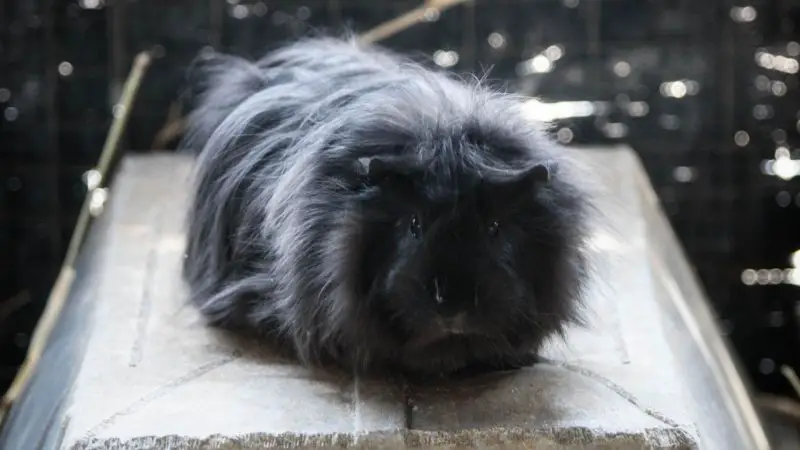
According to studies, guinea pigs do cough. For them, coughing is an airway protection strategy.
Guinea pigs will cough to remove any unwanted materials that have gathered in their airway, thus clearing the air passages.
An unpleasant cough produced by a variety of environmental factors and illnesses, including inflammatory responses, requires rapid medical attention since it might be fatal to our guinea pigs.
How Does a Coughing Guinea Pig Sound?
The sound of a guinea pig coughing is similar to choking noise. It sounds like human coughing, although it’s only a few seconds long.
A sneeze or wheeze sound may accompany a cough, indicating strained breathing. As a result, medical treatment is required immediately.
Why Is Coughing Dangerous?
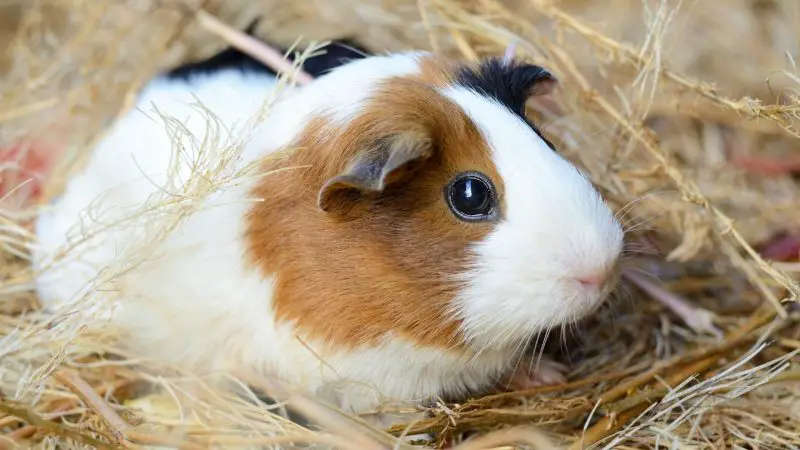
Don’t let people tell you that your guinea pig can’t have severe issues with coughing. Even people can develop certain conditions when coughing, and guinea pigs are much more sensitive.
That being said, having the right attitude towards coughing is crucial for understanding how dangerous it can be. A guinea pig left to cough and suffer is probably not going to last long.
The first time your guinea pigs get sick, their state can become life-threatening if not treated well. Although they can’t get a cold virus, they can develop a respiratory infection or even asthma.
However, asthma is very rare in animals like them, but it’s not impossible. And if a guinea pig has asthma, the decrease in activity is imminent, making it rather lazy. Again, this isn’t typical behavior of a guinea pig.
Can a Guinea Pig Die From Coughing?
Guinea pigs can die from coughing. Coughing is often caused by an infection and knowing what bacteria caused the infection is crucial. But, before you get to that, you’ll need to carefully examine the whole animal as they instinctively hide their illness.
Being tiny animals, they can quickly develop severe symptoms that can lead to their demise, even though there aren’t dangerous symptoms present at the moment.
Can a Guinea Pig Get Sick Because of You?
Guinea pigs are vulnerable to sickness coming from the other living beings surrounding them, included humans.
If you have flu or similar health problems, it’s better to limit your contact with the animal for a short period. Alternatively, you can always wear a mask or wash your hands before and after each interaction.
Humans can transmit viruses to guinea pigs, which is something that many owners don’t know.
If you have a virus, you can ask your friends and family to take care of your guinea pig. When you get healthy again, you can spend time with it again.
Reasons for Respiratory Infections
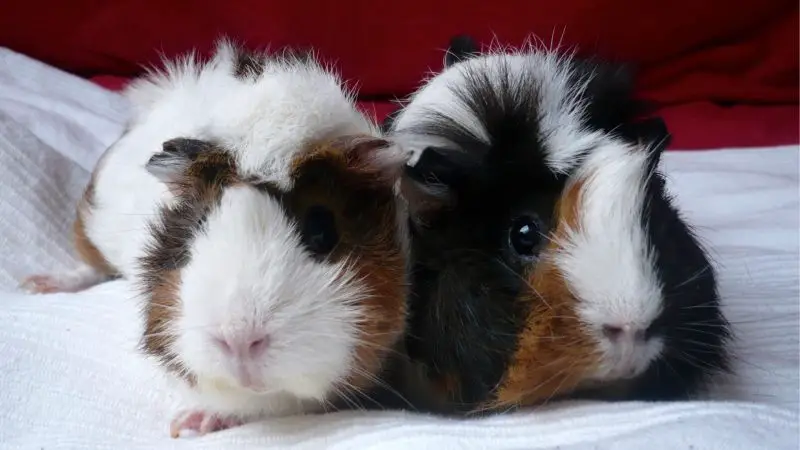
Keep a close eye on your pet. Coughing, sniffing, or sneezing of your guinea pigs might be early indicators of illness. As a result, seeking medical advice as soon as possible after becoming unwell is advisable. However, you must first understand the causes of their illness.
Infections
Infections of the upper respiratory tract in guinea pigs might be passed on from dogs and rabbits. As a result, it is typically better to avoid guinea pig interaction with dogs or rabbits.
Germs may easily pass from one to the other. So, it’s also a smart option to wash your hands before handling any pets at home.
Environment
A clean environment is essential to a guinea pig. Thus, an open window or a lack of attention to bathing might also be the cause of their illness.
Microorganisms
In guinea pigs, like in people, some microbes are the primary cause of upper respiratory illness. Infections in guinea pigs are caused by bacteria called Bordetella bronchiseptica and Streptococcus pneumonia.
Please keep in mind that some guinea pigs will exhibit no signs of infection, yet the diseases will progress silently within their bodies.
And any slight illness, change in diet or habit, pregnancy, or climatic change may reactivate the condition, which will kill it within hours.
Lack of Vitamins
Because of guinea pigs’ intestinal bacterial flora, they are unable to generate vitamin C in their bodies. Vitamin C is known to help with upper respiratory infection prevention and wound healing.
So, it is essential to their health. Symptoms of vitamin C insufficiency include swollen feet and joints, gum ulcers, and recurrent fevers.
Other Reasons for Upper Respiratory Infection
Other factors, such as stress or contact with infected animals, might induce respiratory infections.
A respiratory infection can be triggered by stress caused by overpopulation, bullying, pregnancy, or other medical issues. They can get the virus by direct contact with diseased animals, airborne particles, or the contaminated hands of their owner.
Diagnosing Respiratory Problems
If a guinea pig coughs frequently, the chances are that it suffers from mild or severe respiratory problems. Much like humans, they can get a runny nose and sore throat which can lead to an uncomfortable and painful cough.
To diagnose some respiratory issues, here are some tips:
Check the Breathing
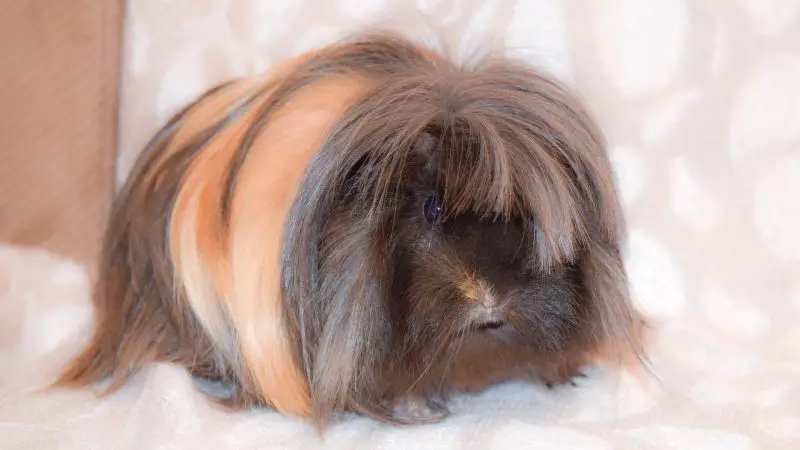
When your guinea pig breathes heavily, it may indicate a respiratory problem. However, it may also indicate that there’s something stuck in its mouth or throat and it tries to push it out.
You can quite easily examine their breathing by picking them up and placing them next to your ear.
When breathing heavily, lungs are strained, and sounds like wheezing and clicking can be heard from the torso. If this is the case, then there is certainly a respiratory problem.
Guinea pig’s breathing should always be quiet, almost silent. The cause of these strange sounds, in most cases, is an allergy.
Specific allergies can make them cough excessively and breathe more loudly. If you keep your pig in a dirty environment and if you don’t clean their environment often, coughing could very well come from that.
Check the Nose
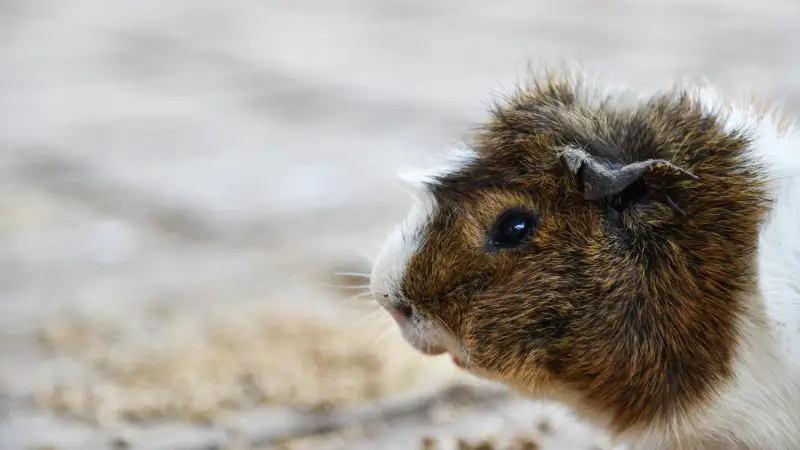
The nose is almost always an indicator of when something is wrong. If you ever had a cough, you probably had a runny or full nose accompanied by it.
The discharge from the nose is directly connected to your ears and throat, meaning that you can have problems with both ears and throat.
In most cases, the discharge slides from the nose into the throat can your guinea pig to suffer from a runny nose and cough simultaneously.
Luckily, the nose of a guinea pig can tell you a lot if you take a closer glance at it.
The first noticeable sign is the discharge, e.g., a runny nose. A runny nose is usually caused by allergies or flu, and this discharge is often green or yellow. A neutral discharge is considered normal, while the colored one can indicate an infection.
On the contrary, their nose can also be dry. When the nozzle is dry, it becomes itchy thus making them scratch and rub it constantly. This can further produce redness and soreness in this area, which is easily noticeable.
Examine the Eyes
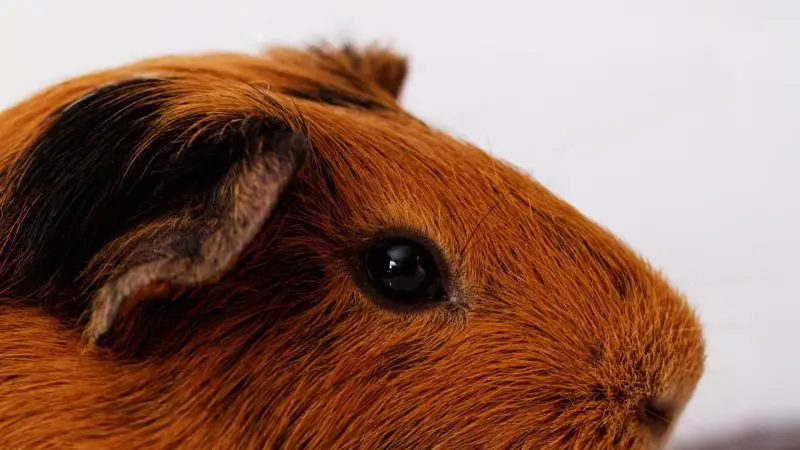
Much like the nose and lungs, eyes are prone to get infected easily. Respiratory problems are the main culprit for eye infections.
However, if your guinea pig coughs a lot, the eyes are mostly intact. In some cases, there can be a discharge from the eyes from excessive coughing.
If it’s an infection that’s causing the coughing, the discharge can have a yellowish color or the eyes can become crusty.
Another common symptom that goes along with coughing is burning of the eyes. The eyes get red and start to become itchy. In some cases, they can develop conjunctivitis, an inflammation of the inner eyelid. If this happens, call a veterinarian as soon as possible.
Loss of Apetite
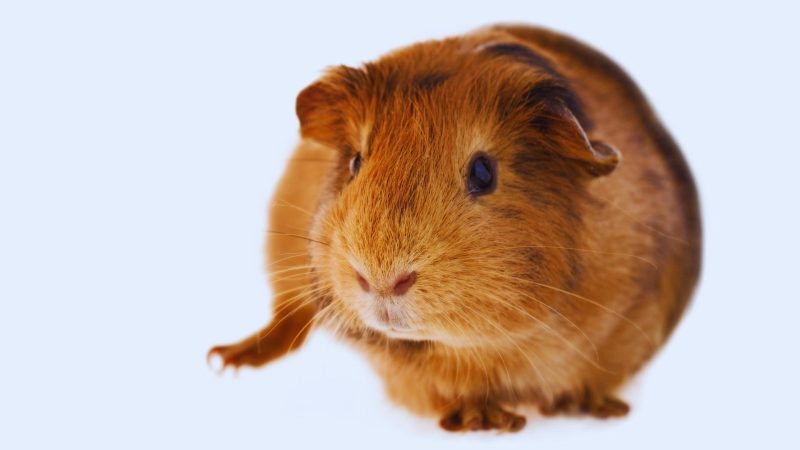
When a guinea pig coughs a lot, its throat can become damaged, red, and very painful. In that case, a loss of appetite can occur.
As a human, when your throat hurts, you don’t want to swallow, even if it is your saliva. Similarly, guinea pigs can get a pretty bad throat infection that could easily lead them to loss of appetite.
The leading cause for this infection that goes along with coughing is bedding and the environment. If you have low-quality bedding, the particles coming from it can damage the pig’s respiratory system.
A damaged respiratory system represents critical damage for a guinea pig, and you’ll be better off avoiding it than trying to fix it.
And if your guinea pig stops being hungry, it won’t be able to receive healthy nutrients from the food, and it will become even more unhealthy. As we can see, coughing can represent a serious issue.
Reduction in Activity
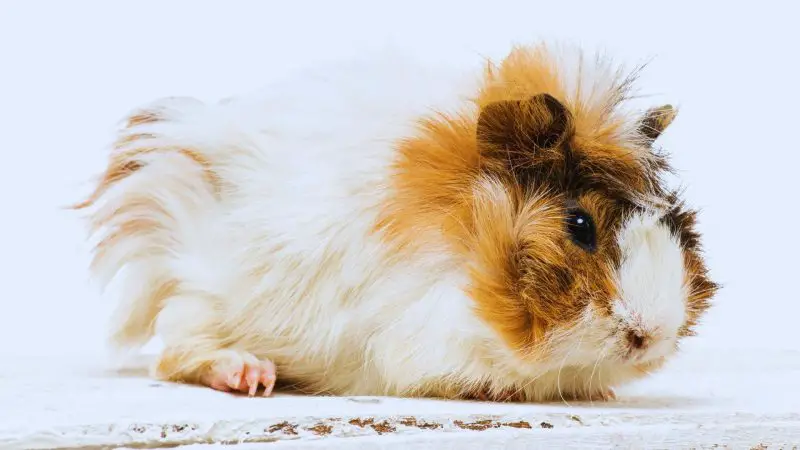
A reduction in activity is a typical symptom that follows excessive coughing. When having respiratory problems, the capacity of the lungs is drastically decreased.
This decrease causes less oxygen brought to the muscle, and if muscles don’t have enough oxygen, they can’t function properly.
As they love to run and jump around, their lungs are under load pretty much at all times. Coughing will reduce this capacity and cause them to start behaving differently.
For example, it will remain in its cage most of the time and avoid playing with you. This behavior is by no means a typical guinea pig behavior. If they cough a lot and start evading company, it’s a sign that you need to call a veterinarian.
How to Prevent Respiratory Infections in Guinea Pigs?
The following are some preventative methods to consider if you want to avoid infections:
Cleaning the cage regularly.
This choice is essential both before and after infection. But once they are already infected, you will do everything you can to avoid another recurrence.
First, rest assured that they should be completely treated. Then, teach yourself how to maintain its cage clean, so this doesn’t ever happen again.
Remove any substances from within your guinea pig cage and remove the old bedding. The cage must be washed with hot soapy water, rinsed, and dried in the sun.
This cleaning should be done twice a week. On the other hand, you should remove food scraps, filthy bedding, excrement, and other waste every day.
Choose an appropriate bedding.
Appropriate bedding will protect them from catching a cold, and appropriate bedding implies dust-free bedding. When the bedding becomes filthy or moist, it should be replaced.
Remember that a moist bed will mold, raising the risk of diseases. Even if the guinea pig isn’t sick, never use cedar or pine shavings since they have oils that irritate their respiratory system.
Have a proper ventilation.
Fresh airflow and cage ventilation are critical to avoid all types of illnesses, particularly respiratory issues.
Because a solid glass cage allows for less airflow, a wire cage is preferable. Also, avoid exposing the cage to direct air since this can be harmful and cause the tiny creature to become ill.
Do not suffocate the guinea pig in the cage.
Keep as few guinea pigs as possible in the same cage. Make sure the cage is big enough for them to live happily together. If you maintain more than one or two guinea pigs in a tiny cage, they may get respiratory diseases due to overpopulation.
Living in a cramped space with no amenities is also distressing for them. As a result of the stress, their immune system becomes weakened, and they are more susceptible to diseases. For two guinea pigs, it is recommended to have a cage size of 30 * 50 inches (76 x 127 cm).
They should not be combined with rabbits or dogs.
Rabbits and dogs are active carriers of the same bacterium that causes guinea pig illnesses. In addition, rabbits have been seen harassing guinea pigs.
This can also result in stressful conditions for them and others in the cage. Stress affects the immune system, increasing the risk of respiratory infections. Keep them in separate cages to avoid this.
Give them enough levels of vitamin C.
Preventing respiratory problems in guinea pigs is necessary. As previously stated, they are unable to generate vitamin C internally.
Hence, an external source is required. Vitamin C-rich vegetables, such as parsley, green peppers, and broccoli, can be added to your guinea pig’s diet.
Dietary supplements may also be administered in the correct amount. So, consult your veterinarian, and they will advise you on which brand to use and how much to take.
Vitamin C pellets are available on the market, however, they are not very long-lasting since they oxidize quickly. As a result, you should replace them within 90 days after purchase.
If you observe any signs of vitamin C insufficiency despite doing everything necessary, you should take him to the medical professional immediately.
Summary
Guinea pigs can certainly cough, and in most cases, this represents a certain health issue. If coughing persists through the days, the best thing to do is to take them to a veterinarian.
Another thing worth mentioning is that you need to keep yourself away from it if you’re sick. I know we mentioned that, but it’s very important.
If you manage to take your guinea pig to a veterinarian, coughing can be solved relatively easily. Remember that they can live 4 to 8 years, so try to make this short period as enjoyable as it can be for your furry friend.
List of Sources
Effects of Airway Inflammation on Cough Response in the Guinea Pig
